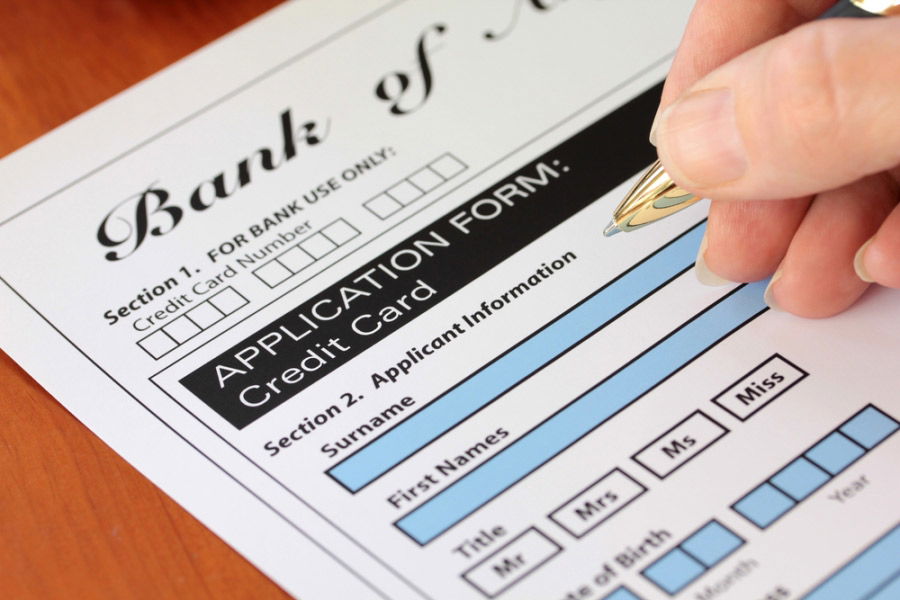When you apply for a credit card, one question can trip people up more than any other: “What income should I include?” Whether you’re working full-time, freelancing, or relying on household income, reporting it the right way could be the difference between approval and rejection — or a low versus high credit limit.

In this guide, we’ll break down what counts as income, what doesn’t, how age affects your options, and how credit card companies verify what you report. We’ll also cover how to avoid common mistakes that could delay or deny your application.
Why Credit Card Companies Ask About Your Income
Credit card issuers aren’t just being nosy—they’re following the law. Since the Credit Card Act of 2009, lenders are required to make a reasonable assessment that you can pay back what you borrow. That means they can’t approve just anyone for a credit card without first evaluating your income.
This rule was introduced to reduce the number of people getting into debt they couldn’t repay. Before the law passed, credit card issuers often approved applications without checking income. It led to high default rates, damaged credit scores, and a wave of bankruptcies.
Now, income plays a key role in whether you’re approved, what your credit limit will be, and even what interest rate you’re offered. The goal is to make sure your income can support the potential debt shown on your credit report.
What Income You Can Include on a Credit Card Application
Not all income counts equally when applying for a credit card. What you can report depends mostly on your age—and whether the money is reliably yours to access.
If You’re 18 to 20 Years Old
If you’re under 21, the rules are stricter. You can only report income that you personally earn or regularly receive. That includes:
- Wages: Income from part-time or full-time jobs
- Scholarships and grants: Only the portion used for living expenses, not tuition
- Allowances: Regular support from parents or guardians
- Stipends: Work-study programs or paid internships
You can’t include someone else’s income—even if you live with them—unless it’s directly given to you and you have consistent access to it. Household income doesn’t count at this age.
If You’re 21 or Older
Once you’re 21, you can include more types of income—as long as you have a “reasonable expectation of access” to the money. That means you must be able to spend it if needed.
Here are examples of income you can report:
- Your own wages: Full-time, part-time, freelance, or gig work
- Spouse or partner’s income: If you have shared access to the funds
- Retirement income: Pensions, Social Security, or distributions from retirement accounts
- Rental income: As long as it’s consistent and verifiable
- Alimony or child support: If it’s regularly received
- Grants or stipends: If they’re given directly to you
- Trust fund income: If you receive regular distributions
The key is that you must have reliable, ongoing access to the income you list.
Quick Reference Table: Eligible Income by Age
Here’s a side-by-side summary of what you can include, depending on your age:
| Income Type | 18 to 20 Years Old | 21 and Older |
|---|---|---|
| Wages (part-time/full-time) | ✅ Yes | ✅ Yes |
| Scholarships or grants | ✅ Yes (living costs) | ✅ Yes |
| Allowances from parents | ✅ Yes | ✅ Yes (if consistent) |
| Spouse or partner’s income | ❌ No | ✅ Yes (shared access) |
| Retirement income | ❌ No | ✅ Yes |
| Rental income | ❌ No | ✅ Yes |
| Alimony or child support | ❌ No | ✅ Yes |
| Trust fund distributions | ❌ No | ✅ Yes |
| Loans (student, personal, etc.) | ❌ No | ❌ No |
How to Include Household Income on Your Application
If you’re 21 or older, you’re allowed to include household income on your credit card application—but only under certain conditions. The money must be in an account that you can access and spend from as needed.
This is most common between spouses or domestic partners who share finances. If you’re married or living with a partner and you both have access to the same accounts, you can report that income as part of your application—even if you don’t personally earn it.
This option is helpful for stay-at-home spouses, caregivers, or anyone who doesn’t earn a paycheck but contributes to household expenses.
Just keep in mind: you can’t list income you don’t actually control. If you don’t have access to your partner’s money, you can’t count it.

Can students use their parents’ pncome to get a credit card?
Maybe. If you’re over 21 and still in school, you can sometimes use your parents’ income—but only if you can reasonably access that money.
Let’s say your parents give you a monthly stipend for living expenses, and the money goes into an account you control. That stipend counts. But if your parents just cover your rent directly or give you money occasionally, you can’t report their full income.
You need a consistent, predictable arrangement where the money is yours to use.
Also important: you can’t combine your income with your roommates’ income. Even if you split bills, unless you share a joint account, their money doesn’t count.
Can you count loans as income on a credit card application?
No, you cannot list loans as income on your credit card application. Loans are debt—not earnings—and don’t prove you can repay new debt.
Whether it’s a student loan, personal loan, credit card advance, or home equity line, none of these qualify as income. They may give you cash temporarily, but they don’t reflect your ability to cover ongoing credit card payments. Including them on your application could also be seen as misleading.
There is one small exception: reverse mortgages. These are structured to provide monthly income-like payments for older homeowners. But even then, it depends on the lender’s rules.
In general, only consistent, recurring money that doesn’t need to be paid back should be included as income.
How Credit Card Companies Verify Your Income
Most credit card companies don’t ask for proof of income when you apply. But in some cases, especially for high credit limits or unusual income claims, they may want to verify the numbers.
There are two main ways they do this.
Documented Proof
If a lender asks for documentation, here’s what you may need to show:
- Pay stubs: Usually from the last 30 to 90 days
- Tax returns: Especially common for self-employed or freelance workers
- Bank statements: Showing regular deposits
- Lease agreements: For rental income
If you’re reporting something less traditional—like alimony, retirement income, or stipends—be prepared to back it up with consistent records.
Income Modeling
More often, issuers rely on income modeling instead of paperwork. This method uses data from your credit report to estimate how much you likely earn. They’ll look at your existing credit limits, payment history, and other financial behavior to make a guess.
It’s not always accurate, but it’s fast and cheaper for the credit card company. If the estimate looks off or your reported income seems unusually high, they may request more info.
If your income varies or isn’t straightforward, keep clear records. That way, you’re ready to show proof if needed.

What Happens If You Lie About Your Income
Lying on your credit card application might seem like a shortcut to get approved, but it’s risky—and potentially illegal.
If the credit card company finds out you overstated your income, you could:
- Have your credit limit reduced
- Lose access to the account
- Be denied future credit
- Be flagged for fraud
In extreme cases, especially if you faked documentation or made up income, you could face criminal penalties, including fines or jail time. That’s rare, but it does happen when someone intentionally commits fraud.
Even in bankruptcy, lying about your income can come back to haunt you. If the lender proves you misrepresented your ability to repay, the court may rule that the debt can’t be discharged. That means you’d still owe the balance after bankruptcy.
If you make a small mistake or honest error, you’re not likely to face major consequences. But always answer the income question in good faith and with numbers you can support.
Final Thoughts
When reporting income on a credit card application, keep it simple and honest. Use an average if your income changes month to month, and only include money you actually have access to. That means no loans or income from others unless it’s in a shared account.
Lenders don’t always ask for proof, but it’s smart to keep documents like pay stubs or tax returns just in case. And while income matters, your credit score can be just as important. A clean, accurate application gives you the best shot at approval and better terms.
Frequently Asked Questions
Can I update my income after getting approved for a credit card?
Yes, most credit card issuers allow you to update your income at any time through your online account or by calling customer service. Updating your income could lead to a higher credit limit if the issuer sees that your ability to repay has improved.
What happens if I lose my job after getting a credit card?
Losing your job doesn’t automatically affect your current credit card, but it can impact your ability to qualify for new credit. If you’re unable to make payments, contact your issuer right away. Many offer temporary hardship programs that can help you avoid missed payments or fees.
Does reporting higher income guarantee a higher credit limit?
Not necessarily. While income plays a role in your credit limit, issuers also look at your credit score, debt levels, and payment history. A high income with high debt may still result in a lower limit than someone with moderate income and low debt.
Is there a minimum income requirement to get a credit card?
There’s no universal minimum, but some cards—especially premium or rewards cards—expect a higher income. For basic credit cards or student cards, a modest and consistent income may be enough to qualify.
Will my credit score drop if I report lower income?
No, reporting lower income won’t affect your credit score directly. Your credit score is based on your credit report, not your reported income. However, lower income might reduce your credit limit, which can impact your credit utilization ratio—a factor that does affect your score.




